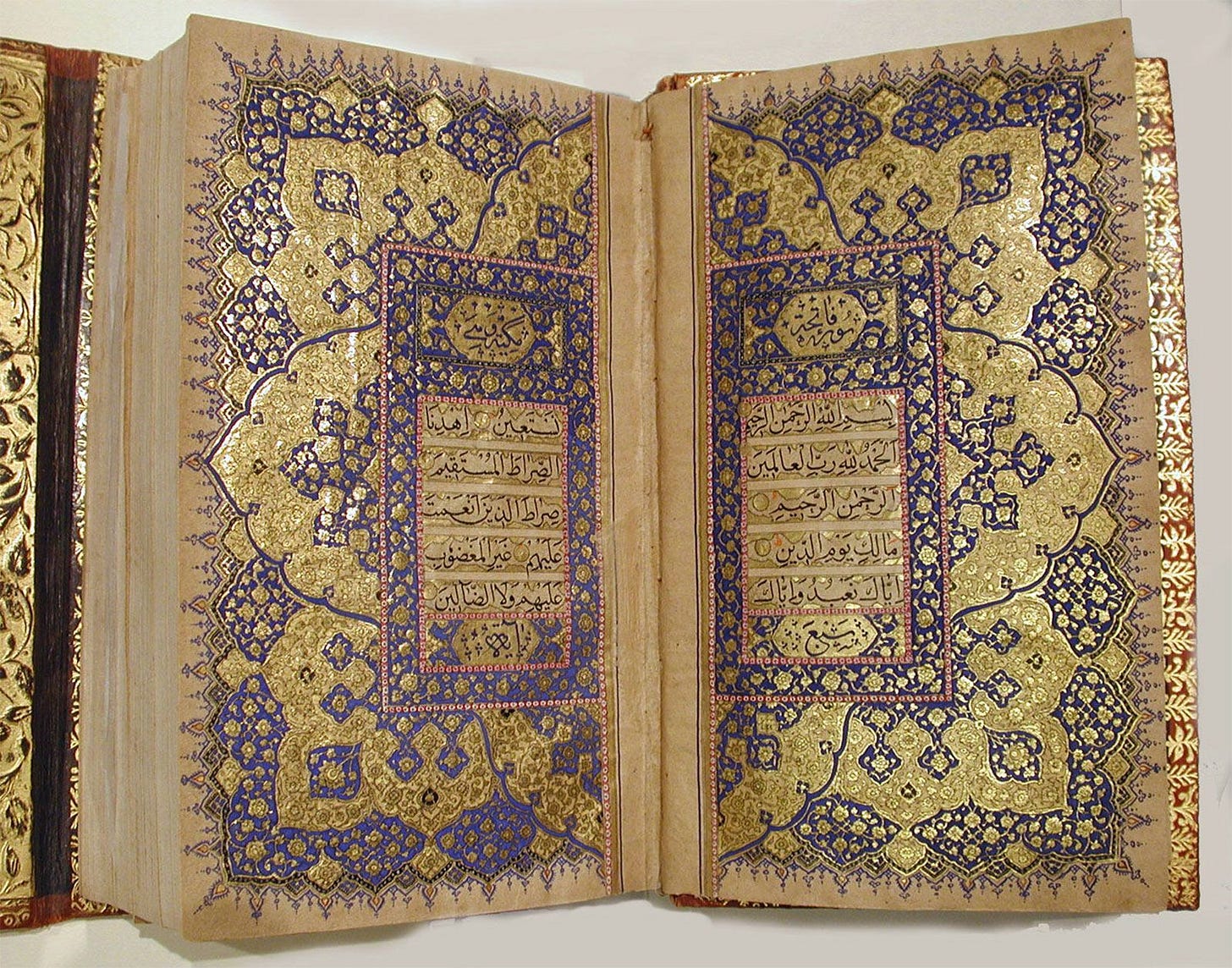Note: If you’re a subscriber who’d like to join our Middle East 201 class in reading and discussing the Qur'an, it’s not too late. You don’t need to have taken Middle East 101 to do so: You just need to do the reading.
We’re reading the Qur'an because of its significance to the history, politics, and culture of the Middle East. But you’re welcome to join the class if your curiosity is mostly literary or theological, instead.
I imagine some of my readers have read it, and some have read it very carefully. But probably, I’d guess, most of you haven’t. If you haven’t, you should. One out of four people on this planet believe it’s the literal and perfect word of God. It’s probably, therefore, a book everyone should read at least once.
But I have to warn you: It’s a slog. Most first-time readers can’t make much sense of it. I’ve tried reading it several times, in several translations, but I’ve so far never reached the point at which I could say, “Astonishingly perfect! Now I understand why this is book has the power it does.” By contrast, I’ve thought exactly that about the beauty of certain mosques—those by the great architect Sinan, in particular—so I do have it in me to appreciate the glories of Islamic culture. It’s only the book at the center of it that so far leaves me perplexed.
Keep reading with a 7-day free trial
Subscribe to The Cosmopolitan Globalist to keep reading this post and get 7 days of free access to the full post archives.





